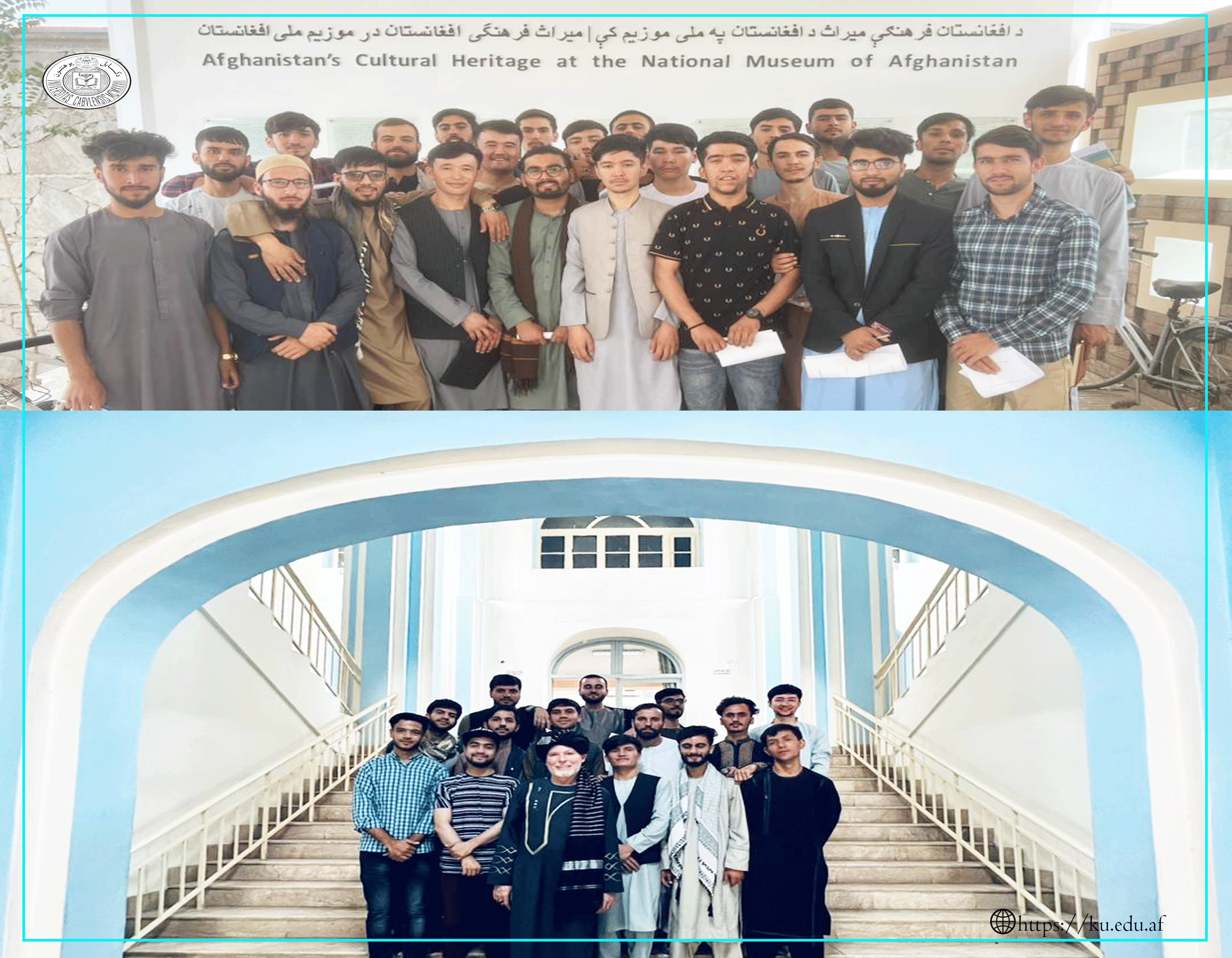Museum

The National Museum, in Kabul, holds the largest collection of Afghan antiquities in the world and as such is the only destination for those who wish to learn about the rich and diverse culture of this nation. It keeps alive the stories and the traditions of those who lived throughout history and it highlights our unique and distinctive land. The National Museum continues to seek out, restore and protect the countless treasures which teach us who we are us Afghans.
Recently, two classes from the Faculty of Foreign Languages, Kabul University, visited the museum. These students had been studying the British poet John Keats, as part of their English Literature course. Professor Jibra’il Omar brought the group to the National Museum to order to inspire them to write an ode (a traditional style of poetry in the English language) about an artefact from their own history.
The students were taken around the various exhibitions by a professional guide generously provided by the Director of the Museum, Sebghatullah Abid . They spent time exploring the great many historical and cultural artefacts found across three floors of rooms. The National Museum has artefacts dating from the Stone Age right up until the present day. In particular, the display on Mesenek (present day Logar) and on the Bamiyan region was of great interest to the students who used the pieces as a basis to write their own poem based on, “Ode on a Grecian Urn.”
Professor Jibra’il Omar stated that it was only now, with the peace and security of the current government of the IEA, that students were able to travel to various cultural institutions and historic sites without faces the dangers that existed under the occupation. “It is time for Afghans to rediscover their roots. Under the previous administration the education system was corrupted with western ideals, ideals which taught non-Islamic thought that directly challenged the ethics and values of Islam. Now all Afghans have the opportunity to explore their country, their culture, their history and their faith - free of the corruption of foreign influence.”
The National Museum of Kabul is an institution that showcases the history of this land. It not only has the largest and most complete collection of artefacts found on Afghan soil but its plays a vital role in ongoing archaeological digs, restoration and preservation (as previously mentioned). Professor Jibra’il Omar stated that, “Afghanistan is at the crossroad between east and west and has been a land that has birthed many unique civilisations. This makes its historical sites and their findings integral to the understanding of history here and on a much larger scale. Afghanistan played a pivotal role in the entire history of Eurasia.” He went on to observe that it is vital for foreign archaeologists to continue to visit and fro fund this essential work. “If the international community does not continue to support this work then it will face great losses and many invaluable relics and historical will slip forever from existence,” he stated.
It is hoped that this is the first of many more educational excursions that Professor Jibra’il Omar, with there support of the Kabul University, hopes in which to engage his students. The professor said, “Education is one of the most important tools to aid in rebuilding Afghanistan. I encourage the international community to focus on what we are doing here now to improve standards in . الـحــــــــــــــــــمـد لله ,education. As an Islamic nation, as muslims, our Islamic beliefs guide us in all matters
Afghans hold out our hand to those who are able to help them and we encourage cooperation ”. إن شاء ا لله ,with all nations
